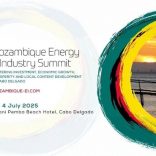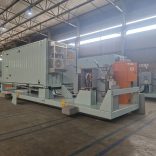Chapo insists that Mozambique LNG project resumption depends on TotalEnergies
Tete steel plant to produce 1.5 million tonnes a year – Mozambique

File photo / For illustration purposes only
The steel plant planned for the western Mozambican province of Tete will cost about US$950 million and will produce 1.5 million tonnes of steel a year, according to the Minister of Industry and Trade, Max Tonela.
He was speaking in Maputo at a meeting presenting the results of the viability study for the project, which has been developed by the British company Baobab Resources
In addition to steel production, the project includes construction of a coal-fired power station capable of generating 250 megawatts of electricity. By the third year of operation, this project should be employing around 2,580 workers, 85 per cent of them Mozambican.
Tonela said this project has been under study for the past decade. Baobab and its partners have already invested over 50 million dollars in research and studies.
Baobab is in partnership with the International Finance Corporation (IFC) of the World Bank Group, and the project’s main technological partner is the Metallurgical Corporation of China International (MCCI).
Tonela said that, because of the enormous potential of the steel project, and the large number of business opportunities that could spring up around it, the government recently approved the creation of the Rovubue Industrial Free Zone, covering 4,456 hectares in Moatize and Chiuta districts.
On its website Baobab Resources days that the Tete project “is ideally positioned at the confluence of all iron and steel making raw materials of iron ore, coal, power and water. By leveraging the Project’s unique access to these resources, Baobab intends to establish a vertically integrated mining and steel-making operation, producing steel products to supply the industrial, commercial and urban growth in Mozambique, as well as regional end-markets”.
“Explosive regional growth underpins a sustained and rapidly expanding demand for steel”, Baobab says. “Currently Mozambique consumes approximately 400,000 tonnes of steel per year, which translates to less than 15kg per person per year. Consumption is expected to double within the next decade, but even at double the per capita consumption, Mozambique will be a long way behind the curve in comparison to its regional peers – underlining the long-term growth potential not just in Mozambique, but in the neighbouring southern African region”.













Leave a Reply
Be the First to Comment!
You must be logged in to post a comment.
You must be logged in to post a comment.